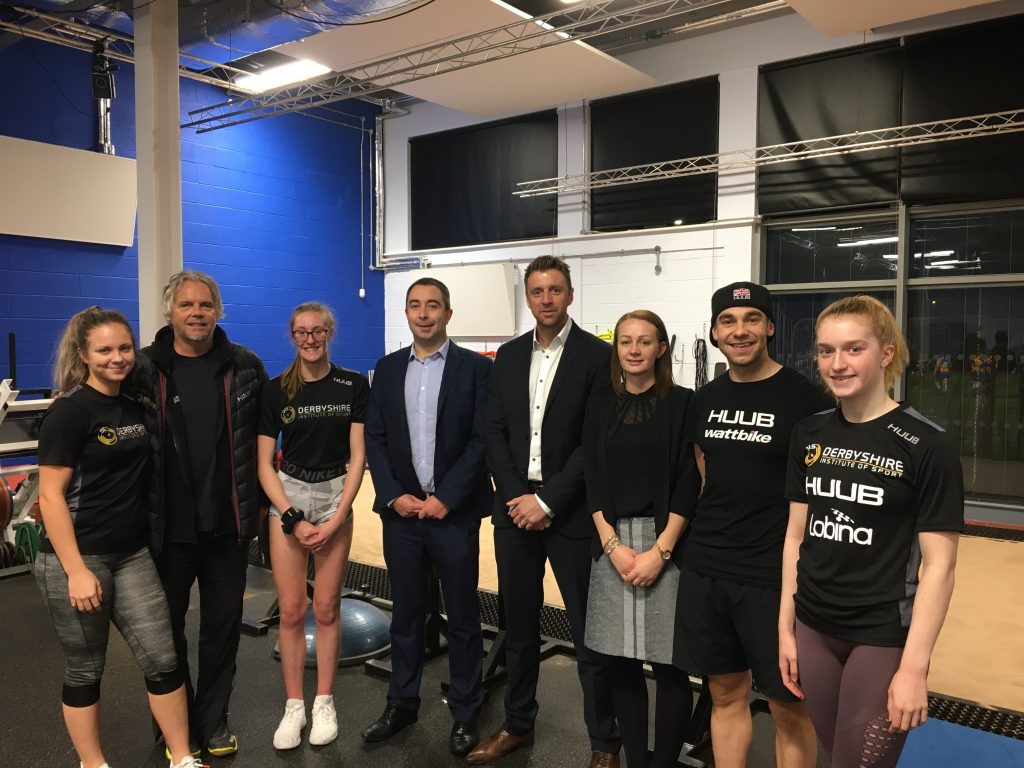The past year has reinforced just how important it is for us to invest in our people. Through our sponsorship with Derbyshire Institute of Sport (DIS), we’re able to access their fantastic network of health and wellbeing experts, and utilise their expertise to support TeamSC. Here, they share their top health and wellbeing advice with us.

The Power of Sleep
One of the most powerful performance supplements that is available for all of us that usually is the most underappreciated and neglected by many is sleep. Sleep is the foundation for human health and performance and key for our energy management. Here are some top tips from a psychological, physical and nutritional perspective on preparing us with getting to sleep.
Routine, routine, routine
We are creatures of habits and therefore routine can have a massive impact on our sleep processes.
Psychological – Create a night-time routine as this will help trigger your brain to think sleep time. This routine should be least 60 minutes so that you can incorporate some down time into your day to mentally switch off and relax. Timing of baths or showers can be a massive help, as afterward our body temperature drops, which can help us feel sleepy. Therefore, leave half an hour between this and bed so your body cools down and aids with starting the sleep process.
Physical – High intensity exercise, such as running and HIIT sessions, in the 2-3 hours before you go to bed can make it more difficult to get to sleep due to an increase in your core body temperature. However, gentle exercise, such as walking, stretching, or breathing exercises can help you relax and get to sleep more quickly. If you are going to exercise later in the evening, think about introducing effective cooling down techniques to help reduce your body temperature back to your normal levels before going to bed.
Nutritional – Timing is everything. Allow at least 2-3 hours to digest a main meal before going to bed. Gentle exercise such as going for a walk after a meal aids digestion and also helps you relax and get to sleep more quickly. The traditional milky drink before bedtime is a perfect choice – aiding both sleep and recovery.
Self-awareness
Eating healthily isn’t just about choosing the right foods but is also about how you eat. Think about why you are eating – is it simply the right time, routine or boredom? Give yourself time to eat and enjoy a meal, remove distractions and notice the colours, textures and aromas. Respond to your signals, think about what you have enjoyed and stop eating when you have had enough to eat.
Help boost life expectancy with daily low volume activity
Research suggests that at least 15 minutes of low volume activity per day can increase life expectancy by up to 3 years, increasing this again to 30 minutes can increase life expectancy by another 1.5 years – compared to those who are inactive.
Stay hydrated
To stay hydrated you need to drink at least 2 litres of fluid every day (8 large cups) and more if you are active or if it is warm. Start drinking from the time you get up and continue to drink at regular intervals throughout the day. Maintaining good hydration improves your concentration, mood and decision making skills. Essentially it allows you to function physically and mentally harder for longer, which means reaping more benefits from the session no matter what type of work/training you are doing.
Make your training session more specific
Making your training sessions more specific can increase your motivation and consistency with training. When going to the gym/ doing a workout at home, changing a few little things can help you make your session more specific. If you want to get stronger, try doing less than 5 reps with long recovery between sets (more than 3mins) and increasing the weight until it feels like you could only do 1 more rep in each set. If you want to lose weight, keep the weights light, lifting 15-20 reps in each set and try to keep your rest time between 30 and 60 seconds between sets.
